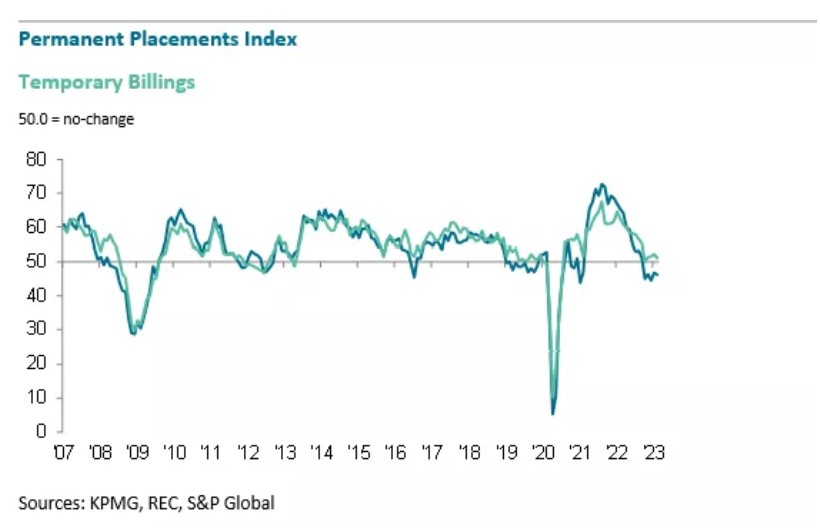Report on Jobs: Permanent positions fall while temporary work continues to rise

Permanent staff appointments in the UK fell for the fifth consecutive month in February, but temporary billing has increased.
The latest Report on Jobs survey, by the Recruitment & Employment Confederation (REC) and KPMG registered monthly permanent placements index fell to 46.3 last month, down from 46.8 in January with employers more likely to use temporary workers to fill roles.

It has been reported that growing costs of living and recruitment difficulties have increased the salary rate of pay for both permanent and temporary positions in February. The permanent salary rate of pay index read 61.3 and the temporary rate of pay 57.6, revealing a steady increase in starting pay rates. This is an encouraging sign that businesses are taking steps to support their employees and providing more attractive salaries to secure the right staff. It is essential that businesses take into consideration the rising cost of living when setting salary rates and prioritise the wellbeing of their employees.
Kate Palmer, HR advice and consultancy director at Peninsula, said hiring temporary employees can be an “effective solution” in situations where employers do not know how much work they will have for employees to do beyond a certain date. “It has been particularly useful recently as the cost-of-living crisis, economic uncertainty and labour shortages have negatively impacted business across the UK,” she said.
Experts say temp positions offer several benefits to employees, these include the ability to gain valuable experience in a variety of different industries, network with like-minded professionals, and develop new skills. However, despite these advantages, many people are hesitant to take on a temporary role due to the financial uncertainty that often accompanies short-term contracts. This is understandable – not knowing how long the contract will last, or how much money you'll earn, can be daunting.
Fortunately, there are ways to manage this uncertainty. One of the most important is to ensure you are paid for all hours worked, and to keep track of your earnings. It's also a good idea to set aside a portion of your pay into savings, so that you can remain financially secure during periods of unemployment.
Commenting on the latest survey results, Claire Warnes, Partner, Skills and Productivity at KPMG UK, said: "Despite the rate of vacancy growth picking up to the best recorded in four months, candidate shortages remain, with recruiters citing hesitancy to move roles and longstanding, systemic skills shortages. Nursing, care and medical topped the rankings once again with highest demand for workers - both temporary and permanent.”
Kate Shoesmith, REC Deputy Chief Executive, said: “What this latest Report on Jobs shows is serious labour and skills shortages are not behind us. The economy stands to lose up to £39 billion in GDP every year from 2024 unless business and government act now. Many businesses are doing what they can but the Spring Budget is the ideal opportunity to find a way forward together. The Chancellor must put people issues first, with innovative and refreshed policies on skills and tackling economic inactivity, and from immigration to childcare.”